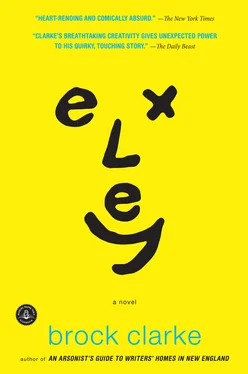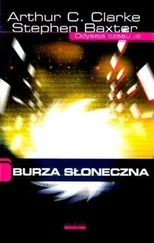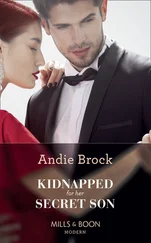In this, I am disappointed: I’m barely “in” the notebook at all. I appear at the beginning — first as the “first doctor” and then as Dr. Pahnee — and then not at all until I am mentioned, briefly, in M.’s retrospective account of the day his father left them. It is an account much revised from when I first heard it in my office, and in it I find part of what I’m looking for: the moment when M. first becomes aware of K.: he overhears his parents discussing (arguing about?) her, and when confronted by M., M.’s father tells him she is his student, which causes M.’s mother to laugh (bitterly?) and then cry. It seems more certain than ever that my suspicions are correct: M.’s father has had an affair with this K., and this is the cause of his departure. As for M. and K., it also seems certain that their relationship is merely “in his head”: M.’s journal asserts that he and K. were in the classroom together earlier today, but I saw for myself that this was not so. Perhaps, then, when M.’s eyes were closed, he was thinking of her in one of those many stone houses. And perhaps this is why M. has put her in one of those stone houses: not because she really does reside in one, but because there are so many of them on the way to the college, and he associates her with the college and his father. As for why M. needs to conduct this imaginary relationship with K., perhaps M. thinks that by consorting with K., he is continuing his father’s legacy. More likely, M. thinks that by having a relationship with K., he is preventing his father from doing the same, thus saving M.’s parents’ marriage. What is not any clearer is why his father says, just prior to his departure, “Maybe I should go to Iraq, too.” But I trust this, too, will become clear with time and with further detection — both mental and actual — on my behalf.
In any case, that is the extent of my presence in M.’s journal. He does not even mention our conversation today at JCCC; as far as the journal would have one believe, there were students in his classroom and he taught them, in his fashion, including this K., with whom M. had an at first heartening and then disheartening conversation after class. This fantasy itself is most disturbing. The reality is also disturbing — in the journal, M. writes that he shot a dog, twice, in his so far unsuccessful quest for Exley — but the fantasy is even more disturbing: it shows M. is using the journal not only as it’s intended — to make things clearer in his mind — but also to make his fantasy textual and not only mental. Likewise, M., according to his journal, did not kick the man in front of the Crystal in the face, which is true; but he does not admit that he did kick the man in the ribs . I confess this is an unforeseen — unforeseen and, indeed, I did not foresee it —by-product of journaling: in writing down the facts of one’s feelings, one might leave out facts, and one might also try to convince oneself that one’s fantasy is, in fact, one’s fact, or at least a fact among other facts, other facts that are , in fact, facts, making it most difficult to tell the fact from the fantasy. I tremble to think what will happen to M.’s mental health if he succeeds in confusing fact and fantasy. I trust these notes accurately depict the severity of that tremble.
I put the journal back at the bottom of the window seat, and then I hear a noise coming from outside. I slide to the floor, close the window seat, crawl out from under the desk, slink to the window, and peek out. There, I see M., standing in the snow-covered driveway, staring at his house. I do not know if he’s seen me, nor do I think it wise to wait and find out. He is standing in the driveway, thus making it impossible for me to exit the way I entered. So I open the front door, close it quickly and, one hopes, silently behind me — the pounding of my heart in my ears prevents my hearing anything except said pounding — and run to my bicycle. I mount it and pedal through the snow, thanking my tires’ deep grooves for each time I do not slip. My heart’s pounding does not relent when I get home, though: for when I’m home, I reach into my coat pocket and withdraw the newspaper clipping I took from M.’s mother’s dresser, and also the manila envelope. I assumed the envelope was empty, that the article either had been its sole content or would be, but when I open the envelope and look inside, I find three pieces of paper. I say “pieces of paper,” but I discover when I unfold them that they are not merely that: they are letters to M. from M.’s father.
Letter 1
Dear Miller,
I just have to say: Jesus H. Keeriiisst, it’s __________ here in __________. Yesterday got so __________ he took off his __________ and went __________ in the __________. He’s from __________. He’s like everyone else I’ve ever met from __________: too stupid to live. Or maybe he’s just stupid enough. The __________ started __________ at him, and like it was no big deal, he got out of the __________ and put back on his __________ and picked up his __________ and started __________ back. He’s fine, although still stupid. I’m fine, too, although I’m feeling old. I miss you and your mom. Everyone here misses someone. But missing someone seems to make them feel young. Missing you and your mom just makes me feel old.
But enough about me. Enough about __________ and the __________.
Thanks for your letter, bud. For Christ’s sake, I can’t believe you read so many books this summer! You should be the one teaching my Great American Writers class, since you’ve already read all of the Great American Writers, even the ones you’re not supposed to! Speaking of my class: thanks for offering to teach it while I’m away, but I don’t think that’s such a hot idea. I was thinking about quitting anyway. I don’t think I’m going to be an English teacher anymore. And don’t worry about K., either. You don’t have to worry about looking after K. Let’s not talk about K. Let’s not talk about JCCC, either. Let’s talk about something else. Like your school. I can’t believe you’re about to be in eighth grade! I know you’re nervous, Miller, being with all those big kids in advanced reading. But don’t be. You’re going to do great. Better than me, at any rate. I was never much of a student, not of anything, not even of literature. I’m more of a literary idolater; even though a certain writer we (!) love said that literary idolaters fall somewhere between blubbering ninnies and acutely frustrated maidens, that’s what I am. But you’re different, Miller. I don’t know how I got so lucky to have a kid like you. I know your mom feels the same way.
That’s it for now. I’m so proud of you, bud. I’m doing my best to make sure you’re proud of me, too.
Love, Your dad
An Early Birthday Dinner
Igot in the front seat. Usually Mother made me sit in the back, because it was the law and she was a lawyer. But I figured since this was a special treat, maybe she’d let me sit in the front. She did. I buckled my seat belt and looked at her. She was still dressed in her work clothes. It was Tuesday. On Tuesday, she wore a chocolate brown skirt and chocolate brown jacket and a shiny blue shirt. I don’t know what she was trying to say with the clothes. But she always looked pretty on Tuesday.
“Where are we going?” I asked again. Mother was looking straight ahead, paying attention to the road. She smiled but didn’t say anything. She drove down Thompson and took a right on Washington, away from my school and toward downtown and the Public Square. It was starting to snow again. Not enough to stick yet, but enough to look good way up in the streetlights. Mother slowed down a little. She never liked driving in the snow. She and my dad used to fight about it. In fact, I think that’s what she and my dad had fought about on the way to Sears to get our picture taken: it was snowing, and Mother said my dad was driving too fast in it and my dad was saying that he really wasn’t and would it kill her to trust him once in a while? “Trust you?” Mother asked, and then no one said anything after that, not even “Cheese” in Sears when the cheese-ball photographer told us to. But like I said, the snow wasn’t even sticking. You could see it in the air, but not on the ground. Mother really was driving slowly, though. We rolled past Good Sam, the welfare office, and the library, and then we seemed to slow down even more as we got close to the VA hospital. Which was when I remembered that I hadn’t seen my dad that day. How could I forget to go visit him? How could I do that? Was it that I’d been too busy doing things for him to actually see him? Or was it that it was harder to actually see the sick person you love, and easier to be somewhere else, keeping busy and doing things to get him better? Either way, I was starting to feel terrible about it when Mother slowed down even more. We weren’t moving much faster than a fast walk now. And I wondered: Could this be the special treat? Were we going to see my dad? Was Mother really going to admit that my dad had been in Iraq after all? That he was in the VA hospital? My heart started to flutter again. Because I knew what I knew, but I didn’t know what I didn’t. Had Mother finally admitted that my dad was in the VA hospital? Had Mother seen him that day? Did she know something that I didn’t? Was my dad all better? Was he at least better enough to come home?
Читать дальше












